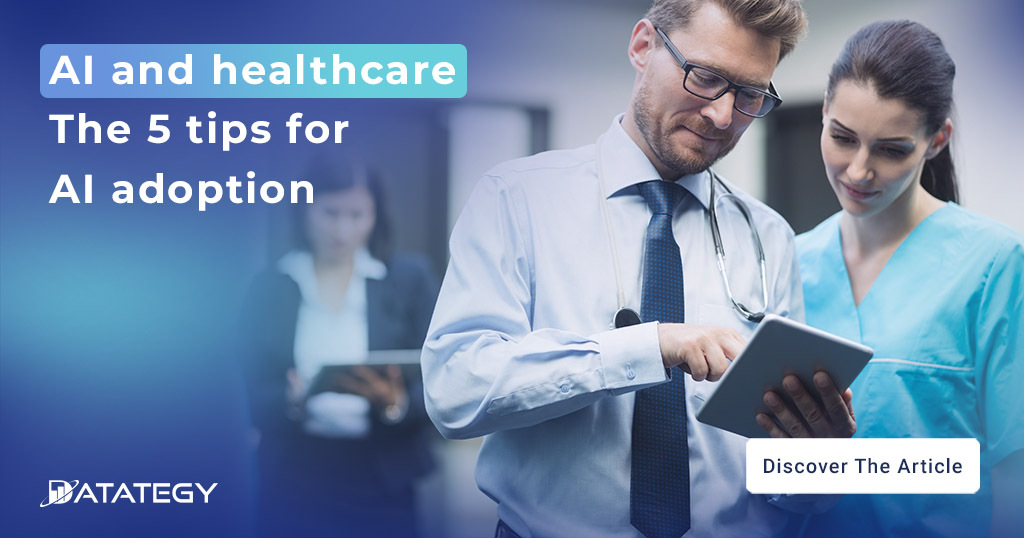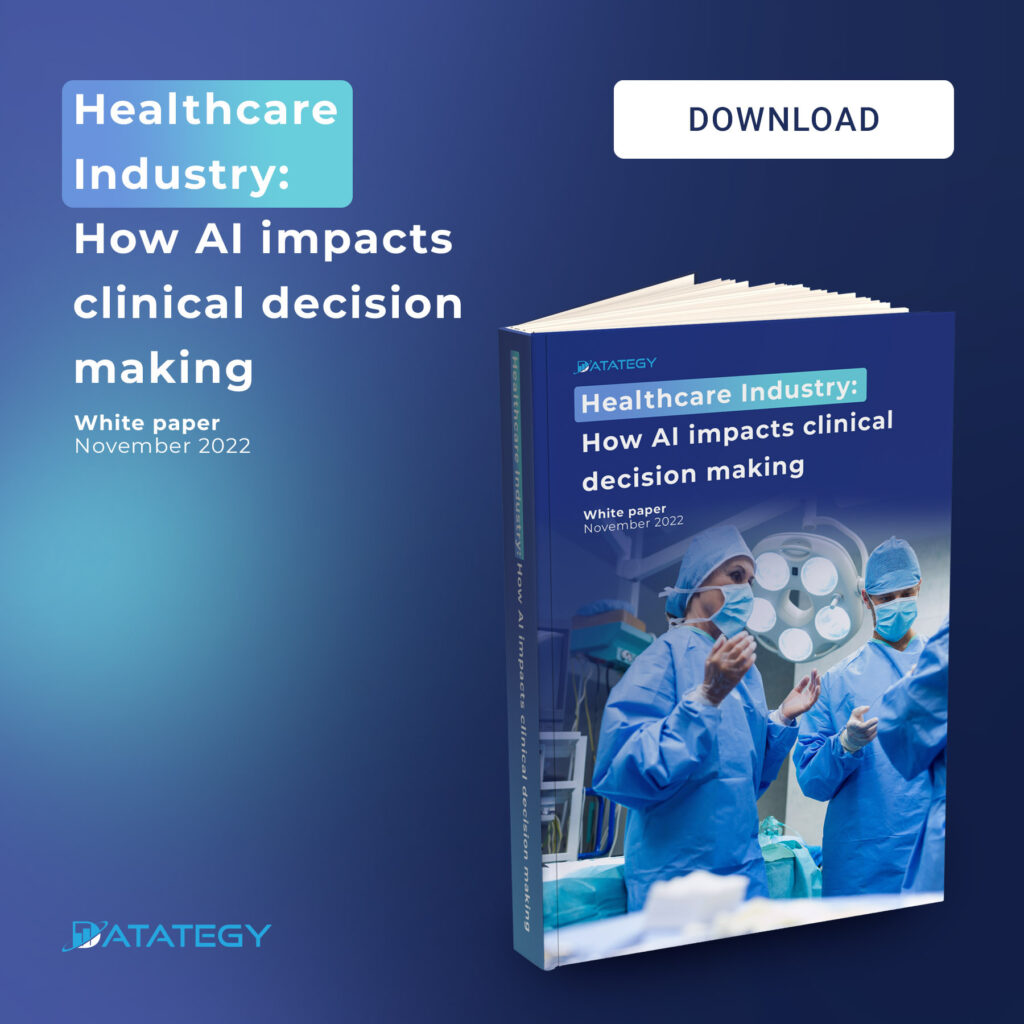Scaling RAG Systems in Financial Organizations Artificial intelligence has emerged...
Read MoreAI and healthcare : The 5 tips for AI adoption
Table of Contents
ToggleThe use of artificial intelligence in healthcare is a highly promising topic that can help reduce medical errors, enable patients to obtain more effective treatments and improve access to healthcare. But it requires significant effort to deliver on this promise. Stakeholders who want to adopt AI need to plan significant investments and take steps to address the challenges inherent in using a complex technology that directly affects patients, healthcare professionals and healthcare systems.

Overall view
AI maturity measures the degree to which organizations have mastered AI-related capabilities in the right combination to achieve high performance for customers, shareholders and employees.
When it comes to making the most of AI’s full potential, most organizations in all industries are barely scratching the surface. According to research from Accenture, only 12% of all organizations have an AI maturity level high enough to achieve superior growth and business transformation (‘AI Achievers’). Another 25% of firms are somewhat advanced (‘Innovators’ or ‘Builders’), while the remaining 63% are still mostly testing the waters (‘AI Experimenters’)

1 - Define an AI strategy and clear objectives
Before embarking on AI adoption, it is essential to formalize a concrete use case based on clear and precise objectives to be achieved. The use case and the objectives are defined in collaboration with the business and technical teams. Scheduling a workshop is a way to understand the business experts needs and to evaluate the technical feasibility of the project. Asking the right questions during this exchange is important to understand what the business experts want to predict and why. This allows you to define the perimeters of the project to implement your AI strategy.
2 - Reassure about data access
Artificial intelligence technologies known as “machine learning” need to be trained in order to be efficient. To do this, they rely on large volumes of data. For the results to be reliable, the data used must be of high quality. This is a challenge for AI solution providers when deploying their applications.
To get the most out of these technologies, a data governance approach must be taken within healthcare institutions to evangelize teams about data, as well as the importance of its reliability, availability and quality. Here again, your artificial intelligence partner can help you reassure your employees and make your projects a real success.
Health data is sensitive, and access to it is therefore highly regulated. However, not all data related to the operational management of healthcare facilities is subject to such a strict framework. It is more easily available, searchable and accessible. Their exploitation by AI solutions brings concrete benefits, such as productivity gains in logistics or flow management. This can be a first step in the adoption of AI in healthcare institutions.
White paper : Healthcare Industry
healthcare is a strategic field for artificial intelligence. It is characterized by the complexity of the data to be analyzed, the large number of variables to be taken into account and the importance of accurate diagnoses to reduce medical errors and improve the quality of care.
Discover in this free white paper how AI impacts clinical decision making.

3 - Enhancing internal skills
4- Human-centric approach
Many professionals fear that one day their work will be done by robots or machines. Of course, it is not possible to exploit the opportunities brought by digital technology in the health sector without human intervention. The carer remains central, there is no doubt about it: artificial intelligence compiles data in the context of guided questions. The doctor makes the final decision, explains it and explores new avenues thanks to digital technology.
5 - Demonstrate ROI
As you know better than anyone, healthcare budgets are tight. IT is not always a privileged expense item. However, it is an essential part of going further and being more efficient. Artificial intelligence is known to be expensive. However, when used properly, it is quickly profitable and a source of performance. For example, in a healthcare facility, it can be used to reduce food waste, improve linen management, anticipate equipment breakdowns, and predict peaks in patient flow to adapt dedicated resources.
If you choose a solution that offers standard algorithms that are prepared, manageable and scalable, development and adaptation costs are reduced and you benefit from a solution that perfectly meets your needs. AI technologies are evolving and becoming more and more widespread. They are real decision aids that drive performance. It is therefore no longer possible to do without them. If you still have doubts, contact us.
Interested in discovering papAI ?
Our commercial team is at your disposal for any question
How AgenticAI is Transforming Sales and Marketing Strategies
How AgenticAI is Transforming Sales and Marketing Strategies Agentic AI...
Read More“DATATEGY EARLY CAREERS PROGRAM” With Abdelmoumen ATMANI
“DATATEGY EARLY CAREERS PROGRAM” With Abdelmoumen ATMANI Hello, my name...
Read More

